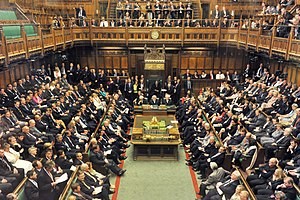By Ben Kerrigan-
British Mps have won a quest to decide how to proceed with Brexit, follwing the disaster that has accompanied talks for the past few months
Thirty Conservative MPs rebelled, including three ministers.Mr Hancock said the government would listen to MPs but “can’t pre-commit to following whatever they vote for”.
MPs back votes on Brexit alternatives told Radio 4’s Today programme that the Commons had rejected no deal and a second referendum, and urged MPs to back the PM’s Brexit deal.
Richard Harrington, Alistair Burt and Steve Brine resigned to join the rebels, with Mr Harrington accusing the government of “playing roulette with the lives and livelihoods” of Britons.
On Monday night, MPs voted in favour of Conservative backbencher Sir Oliver Letwin’s cross-party amendment, which will allow MPs to put forward motions relating to Brexit.
Because of this, MPs will be able to vote on a number of options on Wednesday – likely to include a “softer Brexit”, a customs union with the EU and another referendum – designed to test the will of Parliament to see what, if anything, commands a majority.
Prime Minister Theresa May expressed scepticism about the process – as it was not guaranteed to produce a majority for any one course of action – and she would not commit the government to abiding by the result.
“The votes could lead to an outcome that is un-negotiable with the EU,” she told MPs.
Mr Hancock told Today: “In the previous votes there have been a multitude of potential different options – the sorts of options, like a second referendum, which I think would be a bad idea, that’s been rejected.
“The idea of having a no deal…the Commons is absolutely clear it won’t allow and will legislate against it if necessary.
“That means that the options are narrowing.”He added: “So therefore those who want us to leave and who have previously been voting against the deal because they would prefer a no deal…the best way now to deliver on Brexit is to vote for the prime minister’s deal.”
When asked if the prime minister will abide by the indicative votes, Mr Hancock said: “Clearly, it’s incumbent on the government to listen to what the Commons says.
“But we can’t pre-commit to following whatever they vote for, because they might vote for something that is completely impractical.” This statement shows the lack of faith in the political competence of Mps, further casting doubt on their talents and abilities
Labour’s Hilary Benn said MPs have to take responsibility for the Brexit process because the government was not doing its job. Mr Benn, chairman of the Commons Exiting the European Union Committee, told the Today programme: “If the government isn’t going to do its job then Parliament is going to have to take responsibility, and that is what we are doing on Wednesday.”
Jacob Rees-Mogg, chairman of the Eurosceptic group of Tory MPs the European Research Group (ERG), is among the group of pro-Brexit MPs who the prime minister has been trying to persuade to back her deal.
been voted for “because that means it is possible now to work towards a cross-party proposal”.




